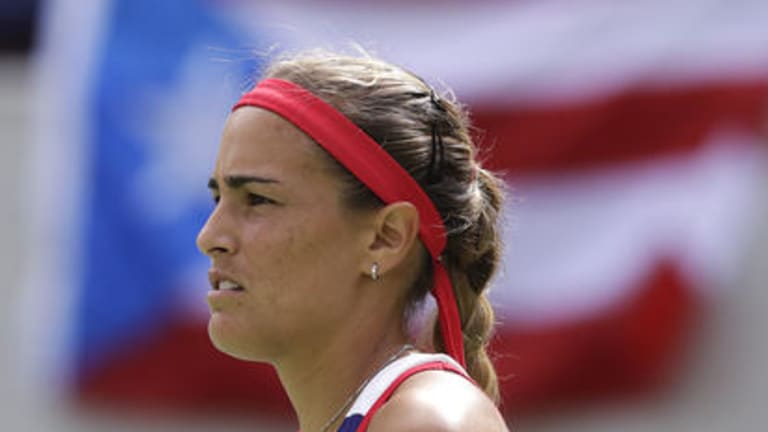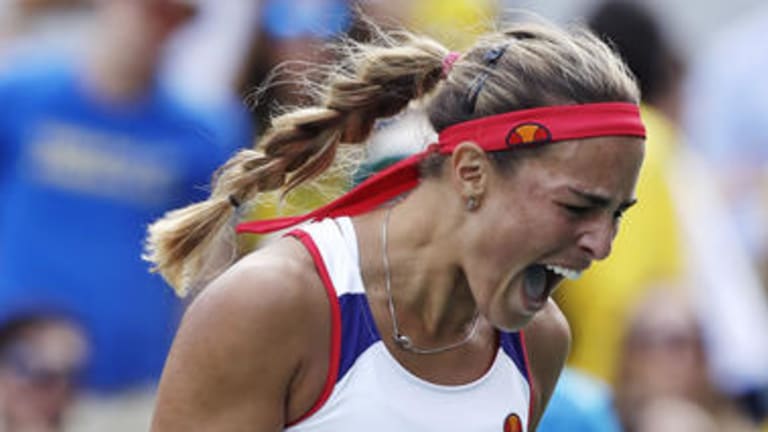“I think I just started to learn how I function a little bit,” said Puig, who lives and trains in Florida, after beating Caroline Wozniacki in Eastbourne in June. “When you’re starting as a professional, you need to work your way through it and understand your body and how it works, especially at this level.”
Puig has credited much of her 2016 surge to the Olympics, and the chance to represent her country. It was something that seemed virtually out of reach as she began the season.
“That was just a main focus for me at the beginning of the year,” Puig said this summer. “I didn’t really have a shot at qualifying for the team, being almost outside the Top 100.”
As the cut-off date to qualify approached during Roland Garros, Puig’s ranking had risen, but she was still on the bubble.
“It was a huge pressure for me actually at the French Open,” said Puig, who named her dog Rio. “My coach [Juan Todero] was like, ‘Don’t worry, you’re going to qualify. Just don’t think about it.’”
“Obviously there were so many people fighting for that last few positions there at the French. I put a lot of pressure on myself, but I was lucky enough to get to the third round and secure my place...For me, representing my country at the Olympic Games is always something I wanted to do, and I know I’m going to enjoy that moment as much as everyone else.”
More, in fact. If the thought of playing in Rio inspired her, the reality of doing it has pushed her to new heights. Before her semifinal against Kvitova, Puig hadn’t dropped a set, and she mauled No. 3 seed Garbiñe Muguruza 6-1, 6-1 in the third round. The always-vocal Brazilian crowd has been firmly behind Puig.

